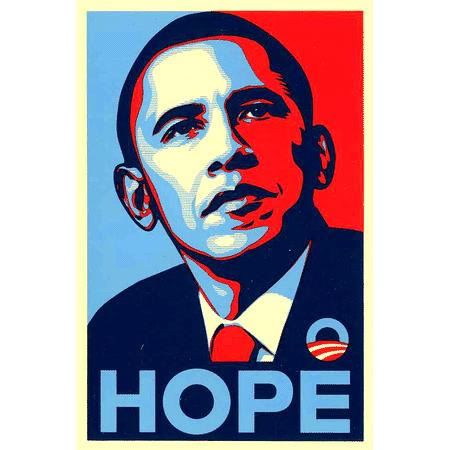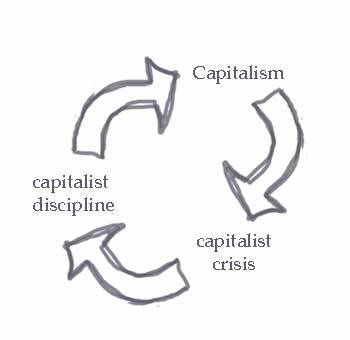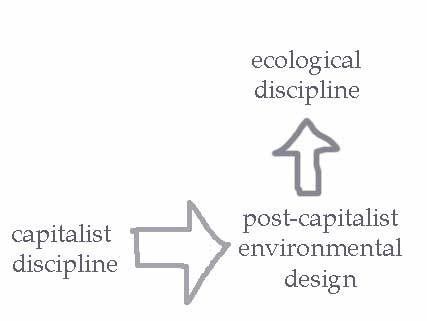(noon. – promoted by ek hornbeck)
This diary will suggest a sort of “Earthly dream” in light of the inspiration felt by millions to pursue the “American dream” of the age of nationalism. I want to proceed from an assessment of where we are now, to a short discussion of how we fit into the systems of which we are a part, to a look at how our hopes and dreams may be transformed into a future of ecological dislocation and crisis.
(crossposted on Big Orange)
INTRODUCTION: OUR HOPES AND DREAMS
I suppose OPOL put me up to this. He said, “Your comments make fine diaries.” Well, all right.
The subject matter here (as with OPOL’s diary) is that of dreams, and perhaps specificially of the American Dream. OPOL is right in assuming that our mental processing of the future, our understanding of it and our compliance with its mandate, starts with hopes and dreams, the dream of a better world for oneself, for one’s children, for the world. In previous diaries I have suggested that we may be on the verge of a Dark Age and that rarely-discussed remedies may be necessary to pull America and the world out of their collective plight. The OPOL diary suggests the topic of dreaming of a better world, although this topic becomes side-tracked by a discussion of the Kennedy assassination and of Bush crimes. Do you see the pattern? We start off talking about hopes and dreams, which are that which we wish to fulfill, and we end up talking about what’s getting in their way.
So at the time of writing this diary we are still in the penumbra of the general euphoria of the Obama election victory. The optimists look for traction on issues which were seemingly lost causes when Bush was in office; the pessimists draw comparisons between the Obama cabinet and the Clinton cabinet. Invariably, then, we are drawn back to the realities of government. Remember, Obama told you he wasn’t going to be your Lord and Savior.
The current system of political economy is defined by the term neoliberalism. People here in the US still aren’t used to that term, neoliberalism, and so we have Naomi Klein talking about the “liberation” of big business from government constraint as “in essence, Chicago School economics (otherwise known as neoliberalism or, in the US, neoconservatism)”. Neoliberalism is the term the rest of the world uses, and the “liberal” in “neoliberalism” is the classical liberalism of 19th century economics. (The words “liberalism” and “liberty” have the same Latin root, and so “liberalism” is always in some sense about someone’s liberty.) The term “Liberalism” in this sense means economic liberty, mainly the economic liberty of big business to do what it wants. This is of course a different sense than the sense in which most readers here would call themselves “liberals.” My previous discussions of neoliberalism have resulted in a lot of confusion; liberals, good people, have assumed in conversation that I was some kind of Republican for attacking “neoliberalism” when nothing could be further from the truth. “Neoliberalism” is merely a set of doctrines intended to facilitate the triumph of Big Business over everything else, and that’s as far as its sense of liberty will go.
In his book The Trouble With Capitalism, investment banker and economist Harry Shutt explains how business works under neoliberalism: lean upon government, cut wages, invent investment bubbles, lie, cheat, and steal, but do what ever needs to be done to expand profit in an age of slowly declining economic growth. (See Minqi Li’s piece in the Monthly Review for how the World Bank’s statistics graph out in this manner.) David Harvey’s A Brief History of Neoliberalism, a really good book on the subject, describes neoliberal business as “accumulation through dispossession.” I suppose the idea of “privatization” takes up most of the meaning of that phrase. Since, as Harvey, points out, neoliberalism “seeks to bring all human action into the domain of the market” (3), government-owned enterprise is generally transferred into private hands, typically to benefit an oligarchy of business patrons. Liberty as such for corporations will mean less freedom for everyone else, and this shows up in the general role of neoliberal government — Harvey argues that “internally, the neoliberal state is necessarily hostile to all forms of social solidarity that put restraints on capital accumulation.” (75)
So this is what we were granted under Bush. The American Dream, reserved for those who can get a piece of the Neoliberal Dream, with a lot of debt for everyone else. Enter post-Bush hope. I believe this is one of its symbolic registers:

(from Stickergiant via Creative Commons)
So, yes, what’s at stake in the post-Bush reality are people’s hopes and dreams. Here is the question that this diary wishes to ask: what should we reasonably hope for? Illuminating this question, of course, are our historically-based hopes, the raw material out of which we can expect future hopes to come.
The “American dream” has typically existed in the shadow of capitalist history, as American history forms a significant part of capitalist history. The American Dream was always promoted in the shadow cast by capitalist discipline. Work hard and you will be rewarded. “Early to bed and early to rise/ Makes a man healthy, wealthy, and wise,” and “A penny saved is a penny earned,” Ben Franklin told us from Poor Richard’s Almanac. The Horatio Alger stories were of people who through “hard work, courage, determination, and concern for others” were able to become successful, i.e. rich. I’m not really saying there’s anything wrong with this: I am saying, however, that it does define the zeitgeist of a particular time (the 19th and 20th centuries) and place (America).
The George W. Bush Dream is about securing the wealth and power of the oligarchy. (The readers can thus see how Bush is a vehicle of neoliberal governance.) Its propaganda is that of the “Ownership Society,” but of course when you have the representatives of government talking about “less government,” “property,” and “liberty,” what they mean is “less government” for thee but not for me, “property” for me but not for thee, and “liberty” for me but not for thee. In short, the American Dream — for me, but not for thee. “Privatization” is thus the mechanism of the “Ownership Society,” and works to benefit the oligarchy of those who can afford the rent on our government officials in an era when it takes hundreds of millions of dollars to elect a Presidential candidate. Government becomes a commodity in such a system; its subsidies will benefit certain corporations, who will continue to keep the legislators they support in the money they provide. We need prove no direct connection between Corporation A and Politician B in order to see how corporations reap benefits, directly or indirectly, from their material contributions to the currently-dominant political system.
The word “private” comes from a Latin word “privatus” which means “withdrawn from public life.” It is indeed no coincidence that “privatization” is the primary slogan inscribed upon the banner of neoliberal economy and neoliberal politics, conducted in an era when powerful corporations wish to withdraw as much of the world from public life into their own hands in an era when the actual growth rate is not sufficient to satisfy their demand for profits.
In this current situation, President Obama will be obliged to offer some sort of “stimulus” in order to save what is left of the old populist Keynesian economy, the economy of Presidents Roosevelt through Nixon. This will occur in addition to the general bailout that occurs as I write this sentence. The populist Keynesian economy will need to be saved because of the contradiction of capitalism so well illustrated by Karl Marx: if nobody can afford the goodies in the stores, then the capitalists will not profit from their sale. Eventually Obama will discover, however, that he has a Second Contradiction of Capitalism to deal with. This contradiction tells us, in short, that if capitalism weakens our planet’s ecosystem resilience to the point where climate change precipitates big weather disasters leading to social collapse a la New Orleans post-Katrina (only far bigger and uglier), then it cannot make a profit either.
This is why I’ve suggested that our hopes and dreams should take the form of a “post-capitalist environmental design.” This is intended to deal with the new, ecosystem-related, crises that we can expect with the proliferation of the “Second Contradiction of Capitalism.”
*****
SYSTEMS CRISIS and the ADAPTATION OF WORLD SOCIETY
One of the things I tend to hear from marxists and other political radicals is that the “capitalist system” periodically tends to experience “crises.” It’s easy to say “so what” to this sort of criticism. Of course capitalism has problems: it’s still better (when it’s regulated and when protections are set into law) than the other systems which have been tried in this era. But there’s also something important about the observation of “crisis” which I wish to address here.
Here I want to address this matter with the idea of “capitalist discipline.” Capitalist discipline is, basically, the disciplined behavior we assume in order to appear as diligent workers, worthy of being paid. But we can use the term “capitalist discipline” to cover practically anything we do to “fit in” with the capitalist system.
Now, as the capitalist system becomes more and more technologically advanced, capitalist discipline spreads around the world, and sinks more and more into the world’s “design.” So, for instance, in the current era, genetically-modified organisms can be sold by corporations such as Monsanto in order to organize a capitalist discipline around the genetic codes of agricultural plants, and thus a new form of profit for Monsanto. At any rate, a historical pattern emerges around capitalist discipline. The capitalist system may falter now and then, but capitalist discipline holds it in place:

Pardon my crude graphic here, but I’m just using this to make a point. The capitalist system may experience crisis now and then, but new forms of capitalist discipline typically emerge to save it. Thus we go from capitalism to systemic crisis to more capitalist discipline, and back to a new form of capitalism. This was most effectively dramatized in the Great Depression, when a new form of capitalism (Keynesian macroeconomics) bolstered by a new form of capitalist discipline (the consumer society) came along to replace what had collapsed in the downturn of 1929-1932.
We can’t, however, use this model to dig our way out of the current economic crisis. As Minqi Li points out:
After centuries of global capitalist accumulation, the global environment is on the verge of collapse and there is no more ecological space for another major expansion of global capitalism. The choice is stark-either humanity will permit capitalism to destroy the environment and therefore the material basis of human civilization, or it will destroy capitalism first.
One can see this in such details as the price of gasoline. You’ve doubtless noticed how the price of gasoline has dropped considerably in recent months, from about $4.50/gallon to about $2.25/gallon; your situation may vary. This drop is, of course, a product of the current economic slowdown — and so one can easily imagine that if the economy were to be really “moving ahead” in the current era that it would exert enormous pressure upon gasoline prices, and the gasoline prices would themselves drag economic growth down. This is an example of how the Second Contradiction of Capitalism works.
Most of the previous crises of capitalism were “curable” through growth, because in each case consumer demand could “power up” the capitalist economy once again. But this won’t work in the current crisis, in which the economy is impacted as much by resource limits and ecosystem fragility as by the absence of consumer demand.
Thus we can observe that world-society needs a new economic system, one which can be aligned with ecosystem resilience so that abrupt climate change does not cause the sort of catastrophic damage that it otherwise would. Such a new economic system (call it “socialism” if you want, but if you do that, call it “ecosocialism“) will not, of course, come into being tomorrow. What it will require, however, can be laid out today, and so we can start with the concept of ecological discipline, the discipline (both individual and social) necessary to pull world-society in harmony with ecosystem resilience. Our present-day world society, however, is not compatible with ecosystem resilience — so our infrastructures will need a post-capitalist environmental design in order to create resilient ecosystems to which we can adapt. Here’s my attempt to graph the new opportunity:

*****
HOPES AND DREAMS REVISITED for the planet EARTH dream
One can see, then, that a world of ecosystem crisis, the world we can expect, is not going to get by on the dream of two cars in every garage. We will indeed want enough to eat, durable clothing for all, and livable shelter. We will also want enough in terms of cultural amenities for mental and social health; transportation, interaction, information, and distribution will still be important. But instead of attempting to create all of these things through the amassing of raw power, the planet Earth dream will focus upon coexistence; instead of exchange, there will be quid pro quo arrangements centered around a gift economy.
Our dreams for the world will center upon peace, equilibrium, and stability. The vision of the world created through ecological discipline will be far more profoundly conservative than that created by the Project for a New American Century, for we will have something to conserve, whereas they have nothing. As with the American Dream, the planet Earth dream will be connected to basic desires: a tasty meal, good sex, and a reasonably painless trip to the restroom. The planet Earth dream will bring all of these things in line with the ethic of coexistence: the tasty meal must be grown with a view to future meals, the trip to the restroom must use what it wastes, and sex is enjoyed by the birds and the bees, the flowers and the trees; it’s not our property.
It is, as Harvey notes, rather unlikely that the neoliberal economy will surrender peacefully. This, however, need not determine our behavior.

9 comments
Skip to comment form
Author
It’s more like a book… sorry…
I’m afraid I wasn’t paying much attention last night. I’ll be reading this (and the linked info) for weeks. Thanks for another brilliant diary Cassi.